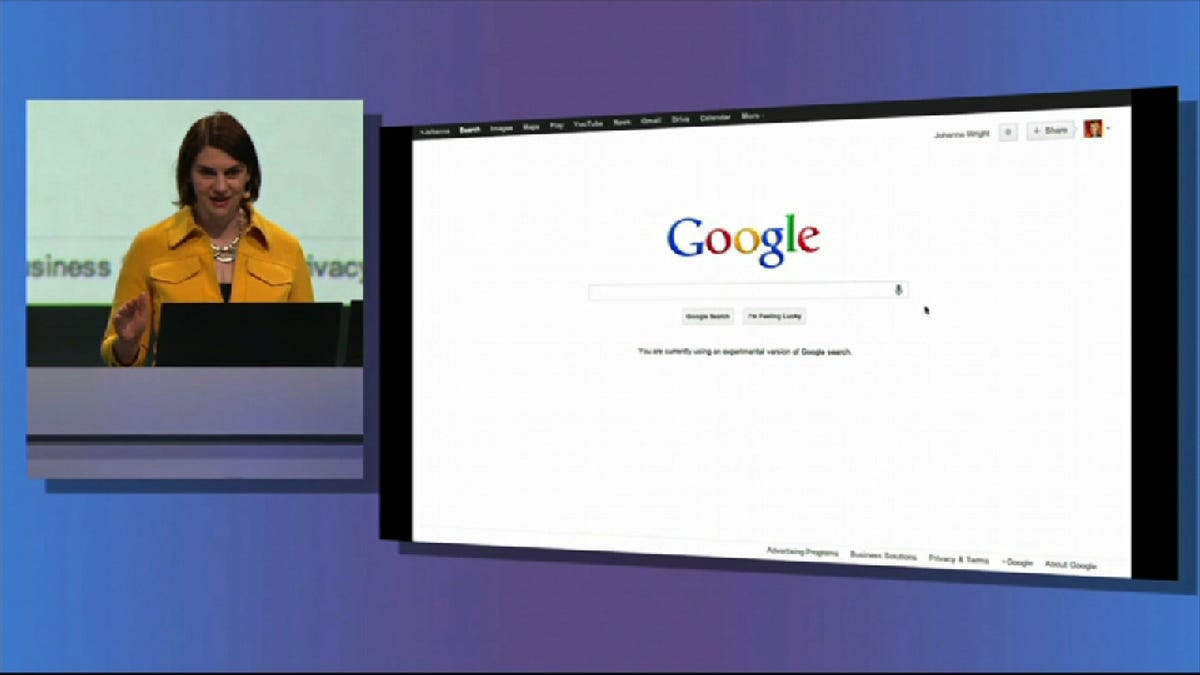How the voice-controlled future will change education forever
<b>commentary</b> If you've ever worked with a child on a big project, you know it often leads to frustration. Google's trailblazing Hotwording could end the tears and change who succeeds in school.

Last week, my son lost all the research he had done for his first science fair project. (Topic: Can Fossils Form in Igneous Rock?) Extreme drama ensued, and ultimately, I ended up typing his dictation for him as he Googled frantically to meet his deadline.
If you've ever worked with a nine-year-old on a big project, you know that unless your child is a prodigy, the process often dissolves into tears of frustration.
As a parent or adviser, you need to teach a child to think critically, understand basic concepts of measurement (Should we measure the temperature at which bones burn in Fahrenheit or Celsius?), and build a logical presentation.
For the child, the project can seem even more overwhelming: He or she has to learn a totally new topic plus find original sources, write it all down, take photographs, find a bone-burning kiln. (OK, that last one was just my kid.) And what if that child already struggles with reading or writing? For any child with a learning disability--even the smallest disability or difference--the prospect of organizing the information and writing or even typing the results sometimes obscure the exciting promise of conducting a live science experiment.
If Google achieves what it's setting out to with Hotwording and voice activation in Google Now, the company paves the way for kids to focus on the experiment, not on the process. Google also sets the stage for academic success based on critical thinking and conceptual achievement, not on writing and arithmetic.
At at the end of today's Google I/O keynote, Larry Page squeaked out in his injured voice, "Technology should do the hard work, so people can get on with doing what makes them happiest in life."
Hear, hear.
For most kids, that happiness in life comes from hands-on, live-action learning--creating new recipes, watching insects in dirt, learning to manipulate a ball. For some kids, continual drill-and-practice on handwriting and grammar is fun. For most, not so much. But we continue to drill and practice in school because until very recently, handwriting and typing were the only way to share the ideas that we originate from original research and learning. In the voice-input era, writing drill and practice will matter less.
As the Google Now demo proceded at Google I/O, I kept imagining how much easier a fully-voice controlled research process would be for my son, who sometimes struggles with writing. He would have spoken his (insightful, I think) questions to Google, then--in a possible future interaction between Google Now and Google Drive--sorted and collated the research in a few clicks, rather than repeating them to me to type.
Current dictation would let him speak his findings into a document, but that voice recognition doesn't come native yet with Google Drive. I imagine that soon it will. It should. Either way, Hot Wording would let him focus on the experiment's output, not the input.
And this future doesn't apply only to the sciences. A child with, say, a flair for poetry but horrible spelling, dictation and voice control mean writing with the voice, where natural cadence matters more.
It's hard for us to consider a future so different from our past. It's sometimes difficult for those of us who were good students because we loved mechanics to consider turning the future over to students who simply ask--and eventually answer--the most interesting questions. I, for one, am ready to reward those students for their thoughts, not their punctuation.
PS: If you're a school district weighing your Apple vs. Google tablet choices, I suggest considering the latter.

